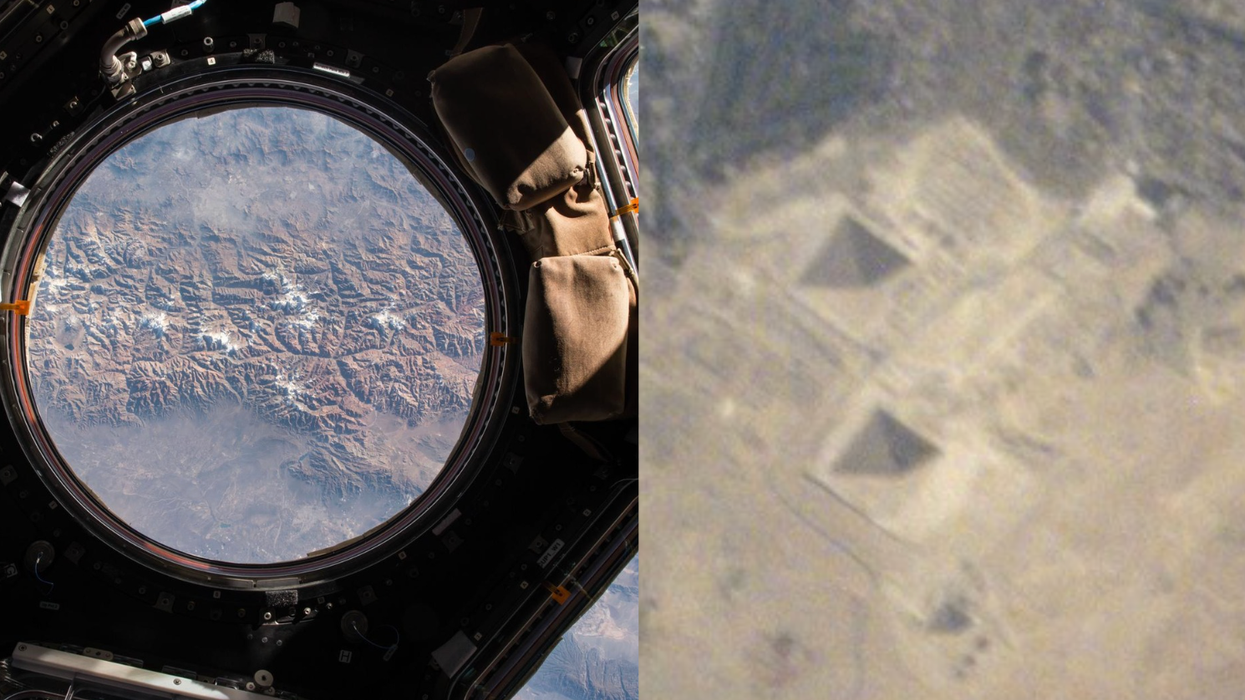The streets of New York were flooded with demonstrators sounding the alarm on climate change last Sunday. An estimated 310,000 people took part in the People's Climate March, alongside famous faces like the U.N. Secretary General Ban-Ki Moon and actors Leonardo DiCaprio and Mark Ruffalo. The climate march sought to capitalize on today’s U.N. Climate Summit, when 120 world leaders will gather to discuss one of the most pressing issues for the future.
Speakers at the Climate Summit are expected to repeat what's become mantra among scientists and climate researchers: the oceans are rising, the ice caps are melting, and animal species are going extinct on a regular basis. Yet climate change skeptics—among them U.S. senators, journalists, and even a science-fiction novelist—continue to deny global warming (or at least humans' responsibility for it), hampering governments’ ability to enact lasting changes to prevent environmental, and subsequently societal, disaster. Meanwhile, the consequences of climate change grow only more dire, and the conversation even more urgent, as the following five examples from 2014 show.
1. Global CO2 Emissions Reach Record High
Just as world leaders prepared to convene for the Summit, scientists from the Global Carbon Project, an organization that monitors the increases in greenhouse gas emissions, announced that more carbon pollution was produced last year than ever before. Blame could be assigned to China, India, and the United States, which saw the greatest jump in carbon emissions.
At the Summit, leaders are expected to discuss ways to bring carbon emissions down. The scientists at the Global Carbon Project predict the numbers will only continue to climb otherwise—they foresee the Earth warming up by almost 2 degrees Fahrenheit over the next 30 years.
2. Naomi Oresekes and Eric M. Conway, The Collapse of Western Civilization: A View from the Future
Earlier this summer, two science historians published a book that depicted a grave future for the world should we continue our climate-oblivious ways. But the two researchers, Naomi Oresekes and Eric M. Conway, chose an unusual package for their message: an apocalyptic science-fiction novel called The Collapse of Western Civilization: A View from the Future.
The novel is set in the year of 2393, written from the perspective of a historian in China who looks back and wonders why societies of the past—read: our present—didn’t heed the warnings of climatologists and scientists. Starvation, disease, and chaos characterize life in the future Oresekes and Conway envision, like a disastrous heat wave in 2041 that destroys food crops and throws the world into pandemonium. “As social order broke down, governments were overthrown, particularly in Africa, but also in many parts of Asia and Europe, further decreasing social capacity to deal with increasingly desperate populations,” they write.
3. Megadroughts are Coming
Firmly in the non-fiction realm, things aren’t much rosier. Megadroughts lasting more than two decade are in our future, say scientists from Cornell University, the U.S. Geological Survey, and the University of Arizona. In a paper published this month, they predicted that climate change will cause the longest, most ferocious droughts the Earth has seen in 2,000 years. Subtropical regions in the Mediterranean and South America will be most affected. The paper's authors claim that the droughts will strain the regions’ already-scant resources, and could likely trigger a humanitarian disaster.
4. Naomi Klein, This Changes Everything
Perhaps social activist Naomi Klein’s celebrity can shock the masses out of their stupor. The bracing author released a new book this month, titled This Changes Everything: Capitalism vs. The Climate. She describes it as “a book about climate change for people who don’t read books about climate change”—which is a pretty large demographic to target. In This Changes Everything, Klein details the neoliberal machinations, like lobbying by multinational corporations, that have stymied environmental reforms. Klein even takes aim at environmental organizations, many of which are compromised by relationships to the oil industry.
“We are left with a stark choice: allow climate disruption to change everything about our world, or change pretty much everything about our economy to avoid that fate,” Klein writes in her book. For Klein, the choice is clear. The problem is that it’s much more cloudy for climate change deniers.
5. The Intergovernmental Panel on Climate Change (IPCC)
This year the IPCC issued their most urgent warning yet. The Nobel Prize-winning group, which falls under the purview of the United Nations, is comprised of leading climate scientists from around the world. In a report they released this past March, the IPCC made grave predictions about the trajectory of climate change, arguing that unless governments made serious efforts to counter global warming, it would soon become impossible to keep the weather from heating up. According to the Associated Press, a forthcoming paper that summarizes the findings of the IPCC's three previous reports lays out an even more drastic situation. The paper, due in October, reportedly focuses on “severe, pervasive, and irreversible impacts for people and ecosystems.” It’s the “irreversible” part that has really struck a chord, as it suggests that we are already past the point of prevention, and now must create adaptive solutions in order to save humanity, and the world.
















 Otis knew before they did.
Otis knew before they did.